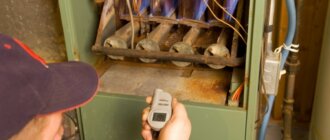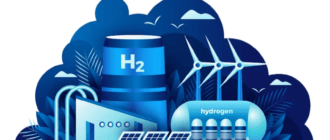Common Reasons Your Air Conditioner Stops Working
As the summer heat continues to rise, a working air conditioner is essential for staying cool and comfortable indoors. But what happens when your AC suddenly stops working? Before you panic and call an HVAC professional, it’s important to understand some of the common issues that may be causing your AC to malfunction. In this blog post, we’ll explore some of these issues and provide tips on how to troubleshoot your AC so you can stay cool all summer long!
Understanding Your Air Conditioner
Before we dive into the common issues that cause an air conditioner to stop working, it’s important to understand how an AC unit works. Simply put, your air conditioner is responsible for cooling and dehumidifying the air in a room or space.
There are several basic components of an air conditioner that work together to achieve this goal. The compressor is responsible for pressurizing and circulating refrigerant throughout the system, while the evaporator absorbs heat from the indoor air. The condenser then releases this heat outside.
In addition to these key components, there are also fans that circulate both indoor and outdoor air through the system. And finally, the thermostat acts as a control center for regulating temperature settings.
Understanding these basic parts of your AC unit can help you diagnose potential problems more easily. For example, if you notice warm air coming from your vents, it could be due to a malfunctioning compressor or refrigerant leak.
Having a basic understanding of how your AC works can empower you to troubleshoot issues on your own or communicate effectively with HVAC professionals when needed.
Basic Components of an Air Conditioner
An air conditioner is a complex machine that works to cool and dehumidify the air in your home. It’s important to understand its basic components so you can better troubleshoot any issues that may arise.
The first component is the compressor, which compresses refrigerant gas into a high-pressure state. This allows it to release heat from inside your home to outside.
Next up is the evaporator coil, which absorbs heat from the indoor air as it passes over it. The refrigerant then evaporates, turning into a gas once again.
The condenser coil then releases this heat back outside and turns the refrigerant back into a liquid form.
The expansion valve regulates how much refrigerant flows through the system at any given time, controlling its temperature and pressure levels throughout each cycle.
There are fans within both the indoor and outdoor units of an AC system that help circulate air for improved cooling efficiency.
Understanding these basic components can help homeowners diagnose problems with their AC unit more quickly and accurately. However, if you’re not comfortable troubleshooting on your own, it’s always best to call in an HVAC professional for assistance.
Common Issues That Cause AC to Stop Working
Your air conditioner is essential for keeping you cool during hot summer days, but what happens when it stops working? There are several reasons why your AC may stop working, ranging from simple maintenance issues to more complex problems that require professional attention.
1. Faulty Thermostat
One common issue that can cause your AC to stop working is a faulty thermostat. If the thermostat isn’t calibrated correctly or is malfunctioning, it may not be able to signal the air conditioner to turn on and off properly.
2. Clogged or Dirty Air Filter
Another issue that can cause your AC to stop working is a clogged or dirty air filter. When the filter becomes dirty or clogged with dust and debris, it restricts airflow and reduces the efficiency of your unit. This can lead to overheating and ultimately result in system failure.
3. Refrigerant Leaks
Refrigerant leaks are another common reason why an AC may stop working. Refrigerant leaks decrease pressure in the cooling system, which affects its ability to produce cold air. Left unrepaired, this eventually leads to complete failure of both heating and cooling functions of the HVAC system.
4. Electric Control Failures
Electric control failures occur due to overuse and wear-and-tear. In such cases, compressor as well as fan controls need immediate repair by experienced HVAC professionals.
5. Sensor Problems
Sensor problems also arise commonly since sensors measure temperature changes around evaporator coils. Sensors should be placed near coils but far apart from fins so they do not sense incorrect temperatures, which could mislead them into turning off prematurely even when there’s still much work left for them!
These are just some of the most common issues that can cause your AC unit to stop working properly. To avoid these problems, make sure you schedule regular preventive maintenance checks with an experienced HVAC professional who will ensure everything runs smoothly and efficiently!
Troubleshooting Your AC
Troubleshooting your AC can be a daunting task, but it doesn’t have to be. By following some basic steps, you may be able to solve the problem without having to call in an HVAC professional.
Before attempting any troubleshooting, make sure your air conditioner is turned off and unplugged. This will ensure that you are safe from electrical shock while working on your unit.
The first step is to check the thermostat. Make sure it’s set properly and that the batteries are not dead. If everything looks good here, move on to checking the air filter. A dirty filter can cause your AC to stop working or run inefficiently.
If neither of these issues appears to be causing the problem, then it’s time to check for refrigerant leaks or electric control failures. These types of issues typically require a professional repair.
Another common issue could be related to sensor problems. Sensors that are out of place or malfunctioning can cause your AC unit to not work properly. In this case, contacting an expert would also likely be necessary.
If none of these basic troubleshooting steps seem helpful in resolving the issue with your AC unit not working properly, then calling a professional technician is recommended before making things worse by trying other techniques yourself!
When to Call a Professional
When it comes to troubleshooting your air conditioner, some issues may require the attention of an HVAC professional. While basic maintenance and cleaning can be done by DIY enthusiasts, there are certain problems that should only be handled by a trained technician.
One instance when you should call a professional is if your AC unit is leaking refrigerant. This issue not only affects the cooling efficiency of your system but also poses health risks due to the harmful chemicals present in refrigerants. It’s important to have a licensed technician repair any leaks and properly dispose of old refrigerants.
Another time when expert help is needed is if there’s an electrical problem with your AC unit. Attempting to fix this type of problem on your own could result in serious injury or damage to your equipment, so it’s better left in the hands of professionals who are trained in handling electrical systems.
If you’ve already tried basic troubleshooting steps like checking for clogged filters or resetting the thermostat but still can’t get your AC working properly, then it’s time to call for assistance from experts who have experience dealing with more complex issues.
Calling a professional for help ensures that any problems with your air conditioner are diagnosed accurately and resolved safely and efficiently.
Preventive Maintenance for Your AC
Preventive maintenance for your AC is crucial to keep it running smoothly and efficiently. Regular maintenance not only helps extend the lifespan of your AC but also saves you from costly repairs down the line.
One important step in preventive maintenance is cleaning or replacing your air filters regularly. Clogged filters restrict airflow, making your AC work harder and consume more energy.
Another crucial aspect of preventive maintenance is checking and maintaining proper refrigerant levels. Low refrigerant levels can cause inefficient cooling or even damage to the compressor.
It’s also essential to clean the condenser coils, which can accumulate dirt, debris, and other particles over time that hinder their performance. The evaporator coil should be cleaned yearly by a professional HVAC technician as part of routine servicing.
Routine inspections are necessary for identifying potential problems early on before they escalate into major issues requiring expensive repairs. A skilled HVAC professional can perform these checks annually during routine servicing.
Preventive maintenance plays a vital role in ensuring optimal functionality and longevity of our air conditioner unit. By taking good care of your AC with regular check-ups, cleaning, and repair works when required, you will help avoid sudden breakdowns at inconvenient times while lowering utility bills all year round!
Conclusion
Maintaining a well-functioning air conditioner is essential for comfortable living, especially during hot summer days. It’s crucial to recognize the common issues that cause ACs to stop working and take preventive measures to avoid them.
Some basic troubleshooting steps can help you fix minor problems with your AC, but when in doubt, it’s always best to call an HVAC professional for repair services. Regular maintenance of your air conditioner can also extend its lifespan and ensure optimal performance.
Understanding the basic components of your air conditioning system and staying vigilant about potential issues can save you from costly repairs and replacements down the road.
With proper care and attention, you’ll be able to enjoy cool indoor temperatures all year round without any disruptions.
Recent Queries:



